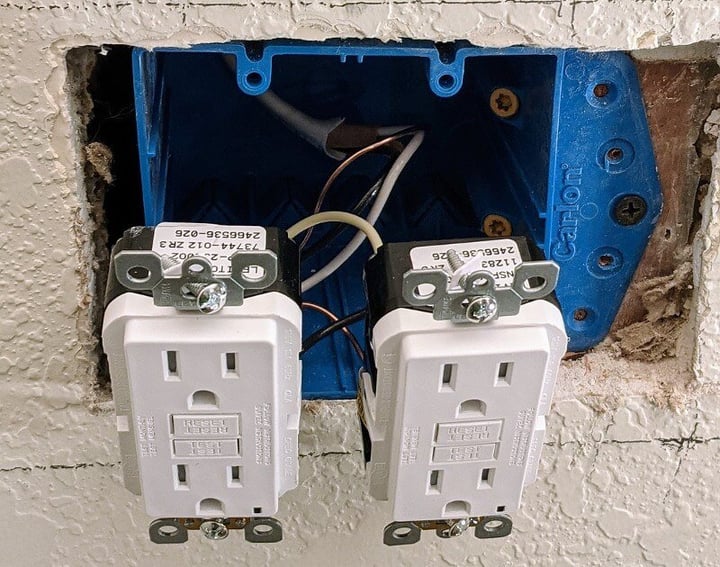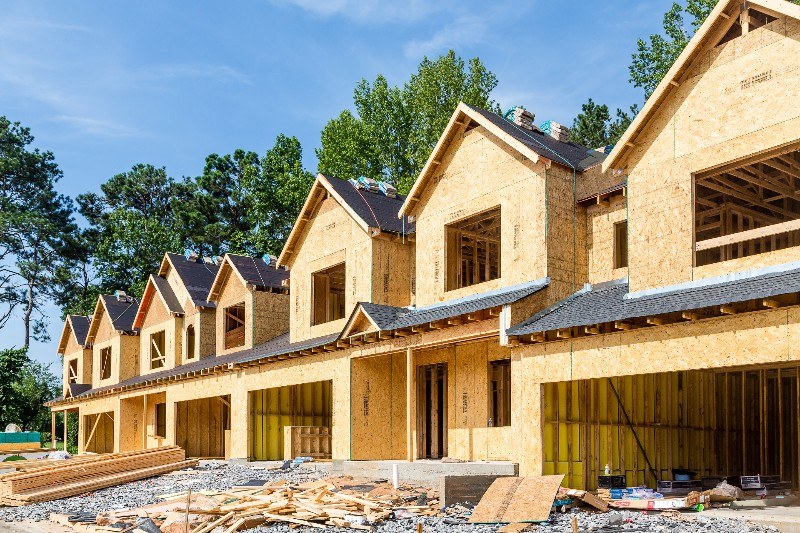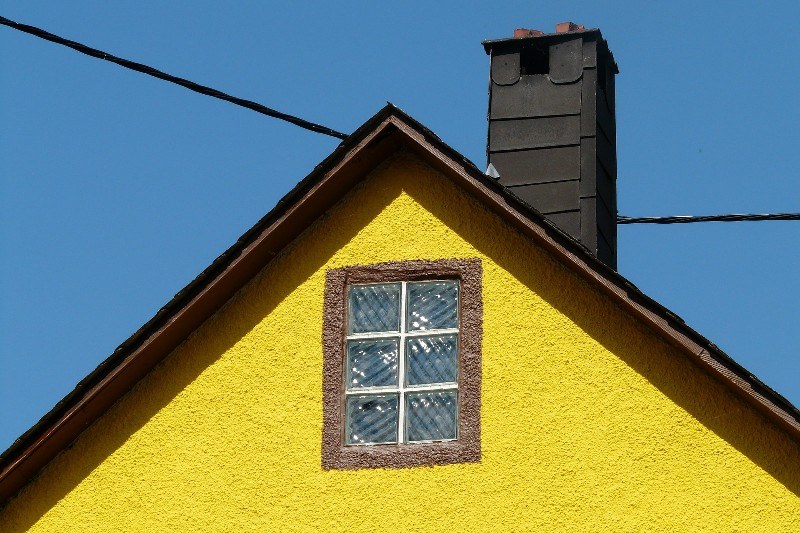
What Do Home Inspectors Look For? Expert Realtors Weigh In
Posted on Feb 09, 2022
Home inspections are an integral part of the homebuying process. Hundreds of buyers opted out of...

Posted on Feb 09, 2022
The home inspection is a cornerstone of the home selling process. For the home buyer, it provides an unbiased view of the home's condition. More often than not, the home inspection will reveal issues the seller wasn’t even aware of.
The home inspection serves as a valuable tool that helps home buyers protect themselves while they make one of the most important financial transactions of their lives - while also limiting liability for sellers.
If you’re a home seller, it’s a good idea to try and get ahead of some of these issues - because it can often help you profit more on the home sale (and lead to less hassle while you're trying to close).
If you’re a home buyer, knowing the common issues can help you approach homebuying more realistically. You’ll also better understand the risks you’ll be taking on if you're thinking about waiving the inspection completely (note: If you’re paying for your home with a loan, the majority of lenders will require an inspection).
In most cases, the buyer pays for the inspection - though this can sometimes be negotiated. The seller can also opt to pay for a pre-inspection prior to buyers looking at the home. The average cost of a home inspection is $300-$500 (the size of your home, where you live, and the company you go to can all impact the final cost).
Even if the home sale falls through, the inspection is done through a third party so the buyer will still have to pay. If the inspection has revealed major issues, though, then the money has been well spent.
Baltimore-based listing agent June Piper-Brandon explains that as home prices have gone up, buyers have become increasingly critical of homes that need numerous repairs.
"With technology, inspections have become increasingly technical and more invasive. The inspector is looking at everything. They can see where things are deficient, and buyers are asking for more and more repairs," she explains. "Especially with prices going as high as they have been for the last year - they’re becoming less tolerant for a house that needs repairs."
So what should you be on the lookout for? We've broken down some of the major issues that come up frequently (though this is by no means an all-encompassing list of what an inspector will look at - these are just the more common things that fail the home inspection!).
As lawns settle over time, low spots and raised areas can occur - and cause water to pool at the base of the house. Sometimes even when homes are built, the original grading and/or slop was done improperly. Drainage problems can destabilize your home over time.
"Inadequate surface drainage and grading is a frequent issue," says Zac Houghton, CEO at Loftera home improvement. "According to most inspectors, this was by far the most common problem found. There are many common problems caused by it: cracked slabs, leaking basements, and water damage."
Issues include:
A lot can go wrong with your roof, which might be why it’s one of the most common home inspection issues. Wear and tear over time as well as improper installation causes damage, which leads to leaks and moisture in the home. Issues include:
You may not think about your windows much, but having to fix them can often be surprisingly expensive. The average cost to replace all windows in a 3-bedroom home is $3,000 to $10,000. Window problems can lead to poor home insulation, which raises heating and cooling costs. Issues include:
Over time, plumbing can shift or deteriorate, leading to moisture buildup or other problems for your home. Issues include:
Sometimes inspectors won't include outside elements like fencing in their report, but you can't rely on them overlooking this.
"All property contents - both interior and exterior conditions within the property lines should be subject to reporting-on during an effective Inspection," explains Walter Kunstmann, Strategic Real Estate Advisor at Real Estate Bees. Issues include:
Electrical issues are surprisingly common in homes. This is often due to the fact that electrical needs have continued to progress, whereas a home’s electrical components reflect the historical needs at the time. Home inspectors will check every outlet in your home. Issues include:
"Reverse polarity is a very common thing that comes up. Your outlet will work just fine but ultimately, it’s a fire hazard," notes Piper-Brandon. "And you've been living in your house for the last 20 years and never had a problem - but all of a sudden you need to have that fixed by a licensed electrician. It's an easy fix and most homeowners can do it themselves, but once it comes up on the home inspection, it has to be done by a licensed professional."

Just because your home has hot water, doesn't mean the heater is necessarily a-okay. If you run out of water quickly - or it only becomes warm, not hot - that can be a sign that something is off. Common issues include:
"Another common issue is the temperature and pressure release valve (T&P) on top of your hot water heater. So if your hot water overheats, there's a valve to release it- and for it to be safe, there should be an extension that takes it down to the floor," explains Piper-Brandon. "If your hot water heater overheats and water comes out, if you don't have an extension then hot water is going to spray all over the room - and that could scald someone."
"A common inspection find: the lack of serviced or clean heating and AC systems, as well as lacking a certified replacement tag on water heaters if replaced," says Kunstmann.
The inspection report is not a to-do list. In other words, you don’t need to fix everything that’s on the list - even if it is an issue.
Many issues can be resolved by giving the home buyers a discount on the final price. If you get an estimate that roof repairs will cost $1,000, for example, you might agree to reduce the price by half or even the full amount.
The home buyer’s lender may require that certain fixes happen before habitation. Building code violations or safety issues will typically need to be handled.
Pay close attention to the inspection report before you sign it, because home sellers can stipulate that nothing except for structural defects or safety issues have to be addressed.
"We have addendums for everything," says Piper-Brendon, noting that the inspection report can often be 40-50 pages long. "Sellers often get bogged down in the report and don't even look at the inspection notice. The inspection notice lays out what items the buyer wants to be addressed. And it’s not usually all the items that are on the report, it’s just a few."
In other words, just because something comes up on the inspection report (what the inspector gives you), does not necessarily mean that the buyer will - or should - ask you to compensate them for it in the inspection notice (it's an addendum to the report that the buyer gives to you - it removes the home inspection contingency once they're satisfied with the results of the inspection).
Importantly, sellers can push back - via their agent - if it seems like buyers are being unreasonable with their repair/compensation requests.
If you’re a home buyer and trying to negotiate for fixes, it’s a good idea to get an estimate for anything you’re not familiar with. For smaller fixes, your Realtor can likely give you a rough idea. For larger issues, though, you should consult a contractor (not the home inspector, who won’t have much experience in determining the cost of repairs). Otherwise, a seller could offer you a $1,000 discount for foundation repairs - leaving you to foot the $5,000 bill it ends up costing you later on.
Home inspectors don’t always find all the issues with a potential home. Logically, it’s impossible to - unless they take apart every square inch of your home, it’s always possible there are issues behind the walls or in the pipes that evade the naked eye. Here are a few things home inspectors sometimes miss, that you should be aware of.
Piper-Brandon points out that the home inspection is limited both by the inspector’s expertise, and also the scope of what they can do while in your home.
"Not every inspector is created equal. All inspectors are licensed and certified, but they don't all come from the same background. You might have an inspector that has a background in home construction. You might have an inspector that has a background in plumbing, or heating, or electricity. So they're going to be a little more knowledgeable about certain things. But you also get inspectors who have absolutely no background in anything related to home improvements or home construction or anything. They have basic, general knowledge, but they’re not experts,” she explains.
She also notes that inspectors are not going to mess around with your home much, to limit their own liability.
“An inspector can't turn on something that’s been turned off. And they're not going to move stuff around, because they can't break anything,” she explains.
So if you winterize your outdoor water spigots, they’re not going to turn them on to make sure they work. And while they will check for signs of leaks, they’re not going to dump water on your roof to double-check what happens when it rains.
This can work against you if you haven’t pre-prepped your home for the inspection.
“If you have a lightbulb burnt out and it's noted in the inspection, it’s not enough just to change the lightbulb. Now you have to have an electrician look at it to find out why the lightbulb was burned out in the first place," she warns. "Before you get ready to list your house, change all the lights. Make sure the lightbulbs are all in working condition. People forget to do that all the time. But an inspector doesn’t know the lightbulb’s burned out. Maybe that outlet doesn't work at all. Maybe there’s a short. He’s not going to change the lightbulb to find out.”
Subscribe to our newsletter to get essential real estate insights.

Posted on Feb 09, 2022
Home inspections are an integral part of the homebuying process. Hundreds of buyers opted out of...

Posted on Feb 09, 2022
It’s a common belief that new build homes come free of defects. They were just made - right? They...

Posted on Feb 09, 2022
Fireplaces add warmth - literally and figuratively - to a home, and they have long been prized as a...